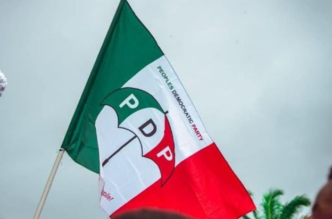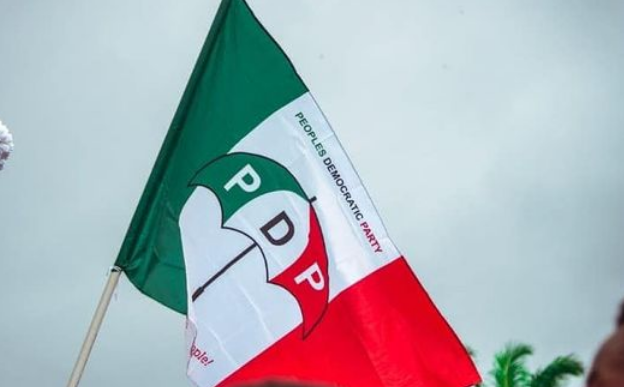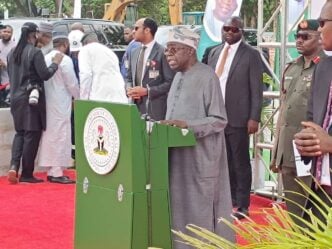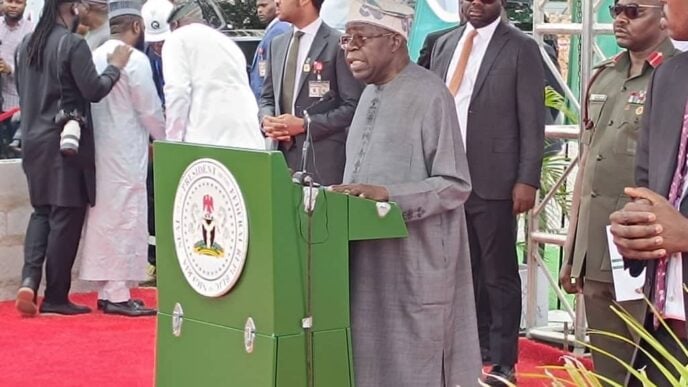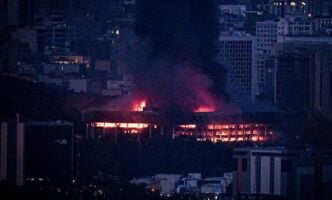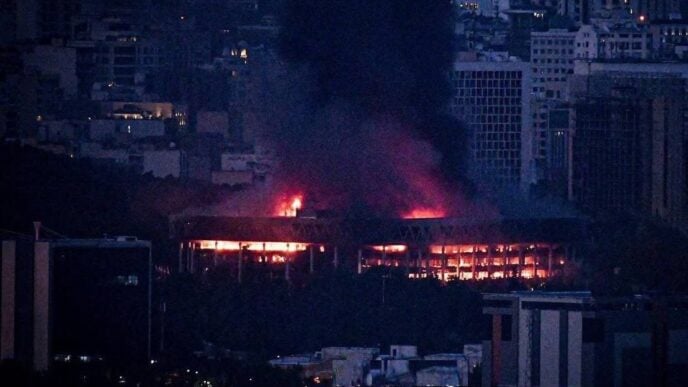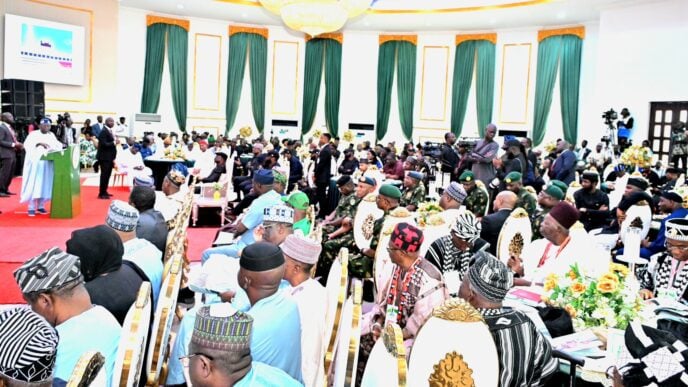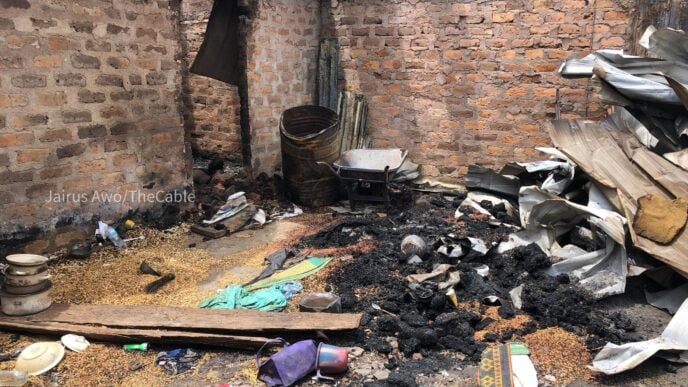Oshiomhole
What happened between Senator Adams Oshiomhole and Air Peace at Lagos airport was an unfortunate altercation. It was a loud, national reminder that Nigeria’s institutions of redress are failing and when institutions fail, the powerful take matters into their own hands, while the public watches, helpless.
Senator Oshiomhole claims he was denied boarding despite checking in online the previous night. Air Peace counters that he did not check in online, arrived late and tried to force his way through. The airline accused him of incitement and terminal disruption. The Senator, in turn, accused them of institutional extortion.
The drama was a spectacle that should never have happened. Regardless of whether the Senator was right or wrong, his decision to physically block access to the terminal and mount the baggage conveyor belt was not only unbecoming of a statesman, it was dangerous. The responsibility of public office requires self-restraint, not street theatre.
As a lawmaker he exhibited distrust in the laws he makes and the institutions created by those laws. Had he filed a formal complaint with the Nigerian Civil Aviation Authority (NCAA) or raised a motion in the Senate, the matter would have taken on institutional clarity and national utility. Instead, we got viral videos, public chaos, and accusations flying thicker than cabin air at 30,000 feet.
Advertisement
But Air Peace is not without blame either. This is not the first time the airline has faced accusations of unexplained delays, last-minute cancellations, overbooking, or brusque treatment of passengers. These recurring crises point not to rogue passengers but to a culture of weak customer engagement and poor operational transparency. The lack of consequences emboldens such conduct.
Compare this to the United States. In 2017, when Dr. David Dao was violently dragged off a United Airlines flight, it wasn’t lawmakers blocking terminals. U.S. Senators, including Sen. Richard Blumenthal (D-CT) and Sen. Maggie Hassan (D-NH), demanded accountability.
The Senate Commerce, Science, and Transportation Committee held a hearing titled “Oversight of U.S. Airline Customer Service”. Airline CEOs, including from United, American, Alaska, and Southwest, testified. In the aftermath of the Senate Hearing, airlines raised compensation limits, for voluntary bumps. There was no drama. There was accountability and change.
Advertisement
The deeper issue in the Airpeace – Oshiomole altercation is beyond a missed flight or public activism. It is about the failure to build and sustain systems of redress and accountability. Our national institutions are not people-centred. From colonial days, they have developed an adversarial and extractive attitude to citizens.
As Minister of Aviation, I sought to rewire the parastatals and close this historical and institutional gap. We introduced a suite of reforms, chief among them was the Aviation Passengers Service Portal (APS), launched in December 2014. The APS was a one-stop digital hub that allowed passengers to search flights, submit complaints, give feedback, and monitor airline performance data in real-time. It was designed to return power to the flying public and build trust in the system.
We also created the 24/7 Aviation Call Center (07000-11-11-11) — the first of its kind — so that no air passenger, no matter their class or status, would be left without a voice or a listening ear.
The Passenger Movement Tracking System (PMTS), piloted at Lagos MM2, was introduced to enhance both security and data accuracy, allowing authorities to monitor movement and enable future planning. The system would have made it possible to bar unruly passengers from buying airline tickets once found guilty through the redress mechanism.
Advertisement
These were building blocks of a rules-based aviation environment. But these reforms were roads not taken or taken only briefly and without continuity.
The APS portal lies dormant today due to non-payment of hosting fees. The call center has gone quiet and the number reallocated to a private company. The PMTS is scarcely mentioned in policy discussions. And so, when disputes arise, there is no neutral, trusted referee. All that remains are angry passengers, overstretched airlines, and public officials resorting to theatre.
In Nigeria, we are still trapped in a logic of confrontation over institution. Senator Oshiomhole responded as a man wronged, not a legislator in a constitutional democracy. Air Peace responded as a company that has learned to win public battles, not as a service provider accountable to regulators.
The tragedy is that this whole episode could have been a case study in mature institutional response. Instead, it became a circus.
Advertisement
As a nation, we must decide: do we want a society of rules or of raw power? Of systems or of scuffles? If it is the former, then the tools are already at our fingertips. We only need the courage to revive them.
Advertisement
Views expressed by contributors are strictly personal and not of TheCable.


